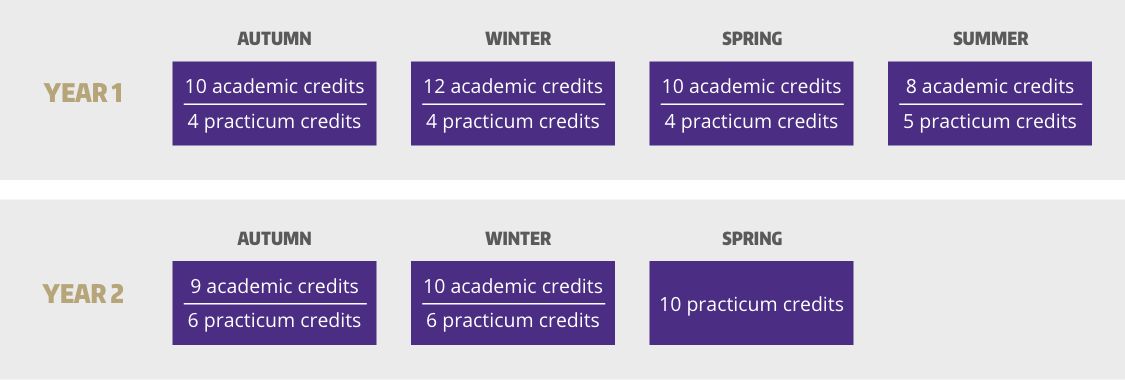Educational Speech-Language Pathology
The UW Master of Science in Educational Speech-Language Pathology (EdSLP) provides a focused course of study in educational aspects of speech-language pathology practice. Our program is designed to prepare you to work with infants, toddlers, children and young adults in a variety of educational settings, including schools and early intervention.
Curriculum
In the EdSLP program track, you'll study a curriculum that's accredited by the Council on Academic Accreditation (CAA) in Audiology and Speech-Language Pathology of the American Speech-Language-Hearing Association (ASHA), the nation’s leading professional organization for speech-language pathologists and audiologists.
The EdSLP program incorporates coursework dedicated to literacy disorders, cultural and linguistic diversity, autism, public school speech-language pathology practice and special education. You’ll complete clinical training across the range of educational groups: early development, preschool, elementary, secondary education and transition planning. You’ll also work closely with other education-based students and professionals in special education.

Program Format
The UW Master of Science in Educational Speech-Language Pathology is a full-time, two-year (seven-quarter) program. This is an in-person program, and classes are held on the UW campus in Seattle. You’ll complete the clinical coursework in UW clinical facilities and community-based facilities in Seattle and the surrounding area. You’ll graduate in June, which positions you to meet the Washington state timeline for speech-language pathology credentialing, hiring and training in the public schools.
Clinical Education and Experiential Learning
A significant portion of your speech-language pathology training occurs outside of the classroom. During both years, you’ll participate in clinical education and experiential learning, including practicum and internship experiences. In your first year, you’ll complete a series of rotations in UW clinical facilities. This training will prepare you for your community-based practicums and internship during your second year.